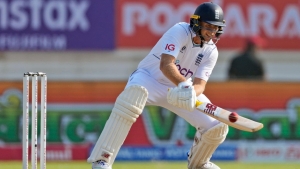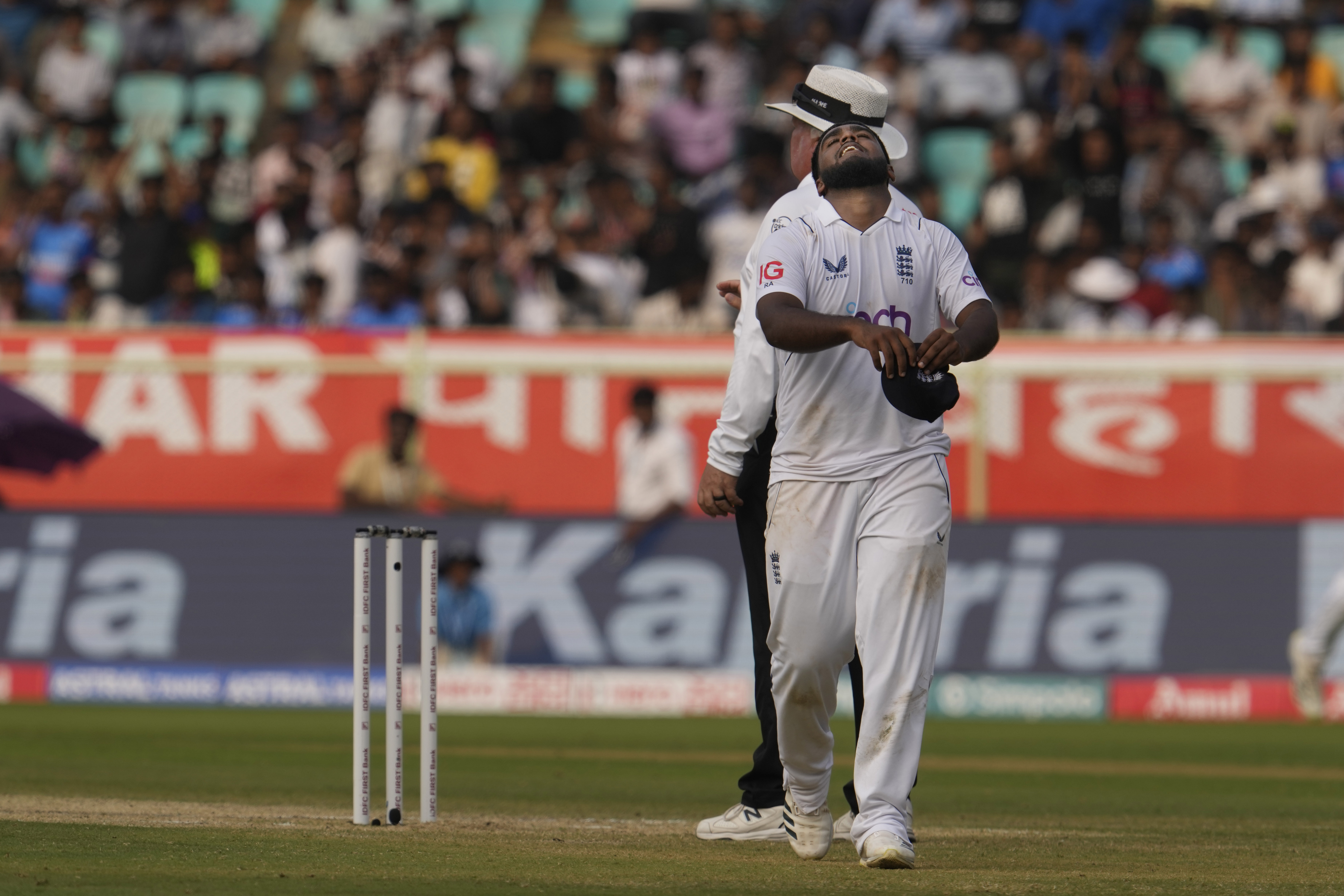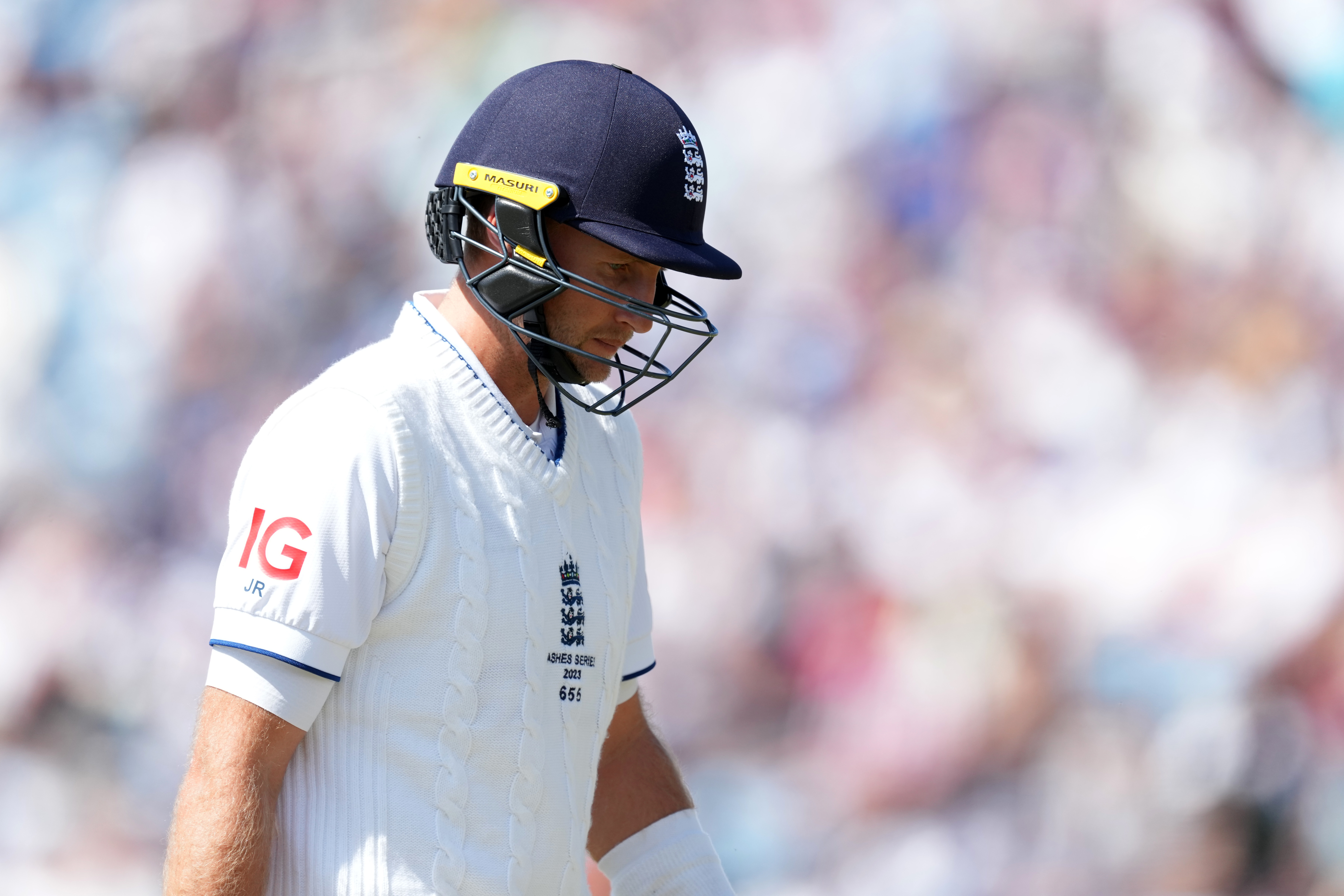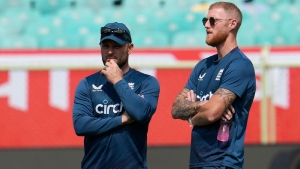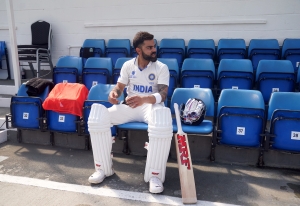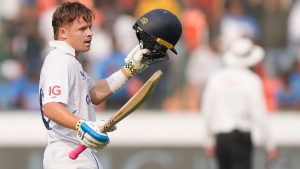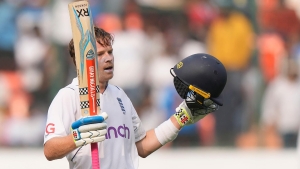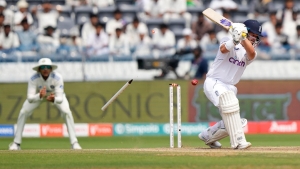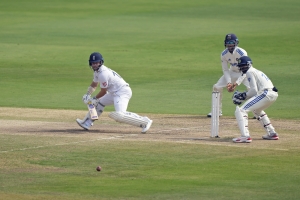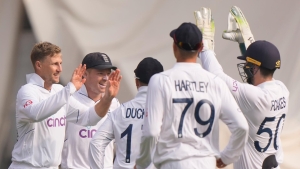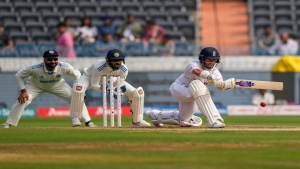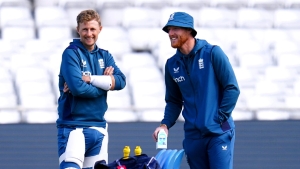Ollie Pope led the resistance with a brilliant, battling century as England fought hard to keep the first Test against India alive in Hyderabad.
Faced with the unenviable task of overturning a 190-run first-innings deficit, the vice-captain dug deep to make an unbeaten 148 as his side found their way to 316 for six at stumps on day three.
While the tourists still have plenty of work ahead of them to turn the pressure fully back on India, they showed admirable steel to build a lead of 126 with four wickets still in hand.
Pope’s fifth Test hundred was the mainstay, marking a welcome return after six months out following surgery on a dislocated shoulder.
The Surrey batter had not played since the second Ashes Test last summer and, without any warm-up games to find his feet, looked short of rhythm when he was dismissed for just one on the first day.
He started sketchily again, aiming an errant reverse sweep at his second ball as he searched for scoring shots, but grew in stature as he put together an innings of real substance.
Having bounded along to his half-century in just 54 deliveries, he took 100 more to reach three figures.
The longer Pope took, the more controlled he appeared, and this was a knock that reinvigorated a contest that seemed destined to slip away from England in a hurry.
The scoreboard looked ominous when skipper Ben Stokes fell at 163 for five, India still 27 ahead, but Pope and Ben Foakes, with 34, gritted their teeth in a partnership worth 112.
India began the day on 421 for seven and were mopped up efficiently for the addition of just 15 runs.
Joe Root, continuing his unexpected emergence as his side’s most threatening bowler, snapped up two in two balls, Ravindra Jadeja lbw for 87 and Jasprit Bumrah for a golden duck. Rehan Ahmed provided the finishing touch when he zipped one low through Axar Patel.
If India losing three wickets without a run caused jitters in the away dressing room they were not evident in a dashing opening stand of 45 between Zak Crawley and Ben Duckett.
Crawley reverse swept with authority and lifted Patel down the ground for six, but was gone for 31 before the end of the 10th over, nicking Ravichandran Ashwin to slip.
Pope’s presence was not immediately reassuring, hitting fresh air almost immediately as he attempted to get off the mark with a reverse sweep of his own, but Duckett’s arsenal of sweeps proved a reliable source of runs.
England took lunch at 89 for one and were up to 113 when a masterful spell of reverse swing from Bumrah cut their fightback down.
He should have had Duckett lbw but saw his appeal wrongly shrugged away by the on-field umpire and his captain.
Undeterred he came again, shaping the ball through the air, through the gap that Duckett’s lavish drive left and sent his off stump flying for 47.
Root followed after just six balls, trapped in front by another that tailed in and thudded his front pad. On a pitch that had rendered the pace bowlers an afterthought for so long, it was an exceptional intervention from Bumrah.
It was credit to Pope that he not only survived it but also kept his score moving, picking off boundaries and topping them up with hard running between the wickets.
He needed a partner to help but lost Jonny Bairstow for 10, offering no shot to Jadeja’s arm ball, and then saw Ashwin snake one past Stokes’ outside edge and into the top of off.
England were still 18 behind at the start of the evening session but Pope and Foakes knuckled down to turn that into a workable lead.
Foakes watched the ball on to his bat and took minimal risks, while Pope showed real poise as he built his score with a new sense of calm.
By now the reverse sweep that had left him looking vulnerable earlier was coming out of the middle of the bat and providing a vital supply of boundaries.
He gradually became more inventive as he sought gaps in the field, leaving India scratching their heads as they tried to pin him down.
He scrambled three off Jadeja to reach a hard-won hundred, his first in the second innings and third overseas, and marked it in under-stated fashion.
Foakes’ stay was ended by a grubber from Patel, who blotted his copy book by dropping Pope on 110.
That allowed Pope to walk off unbeaten at the close with Ahmed at his side, dreaming of further heroics on day four.























